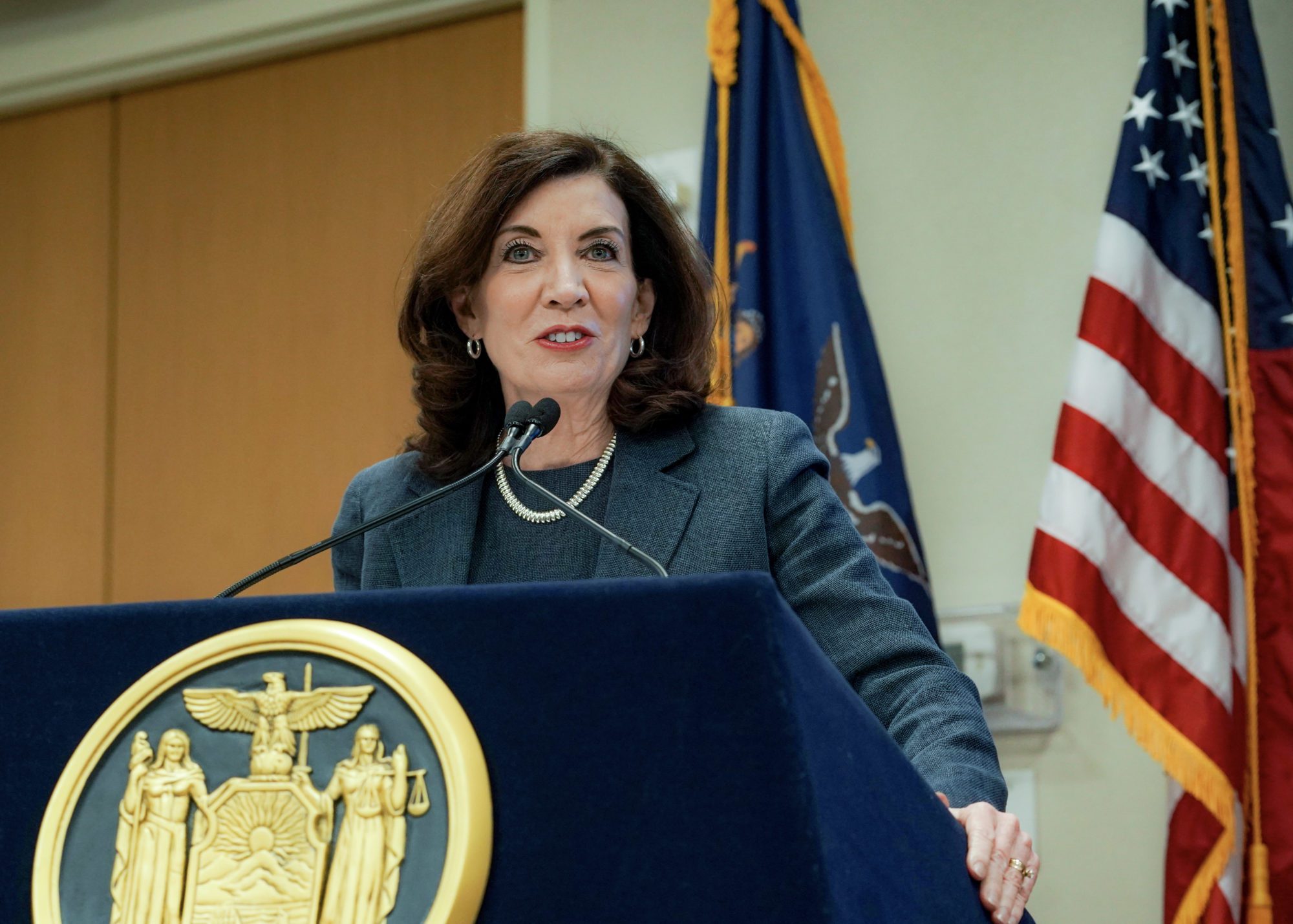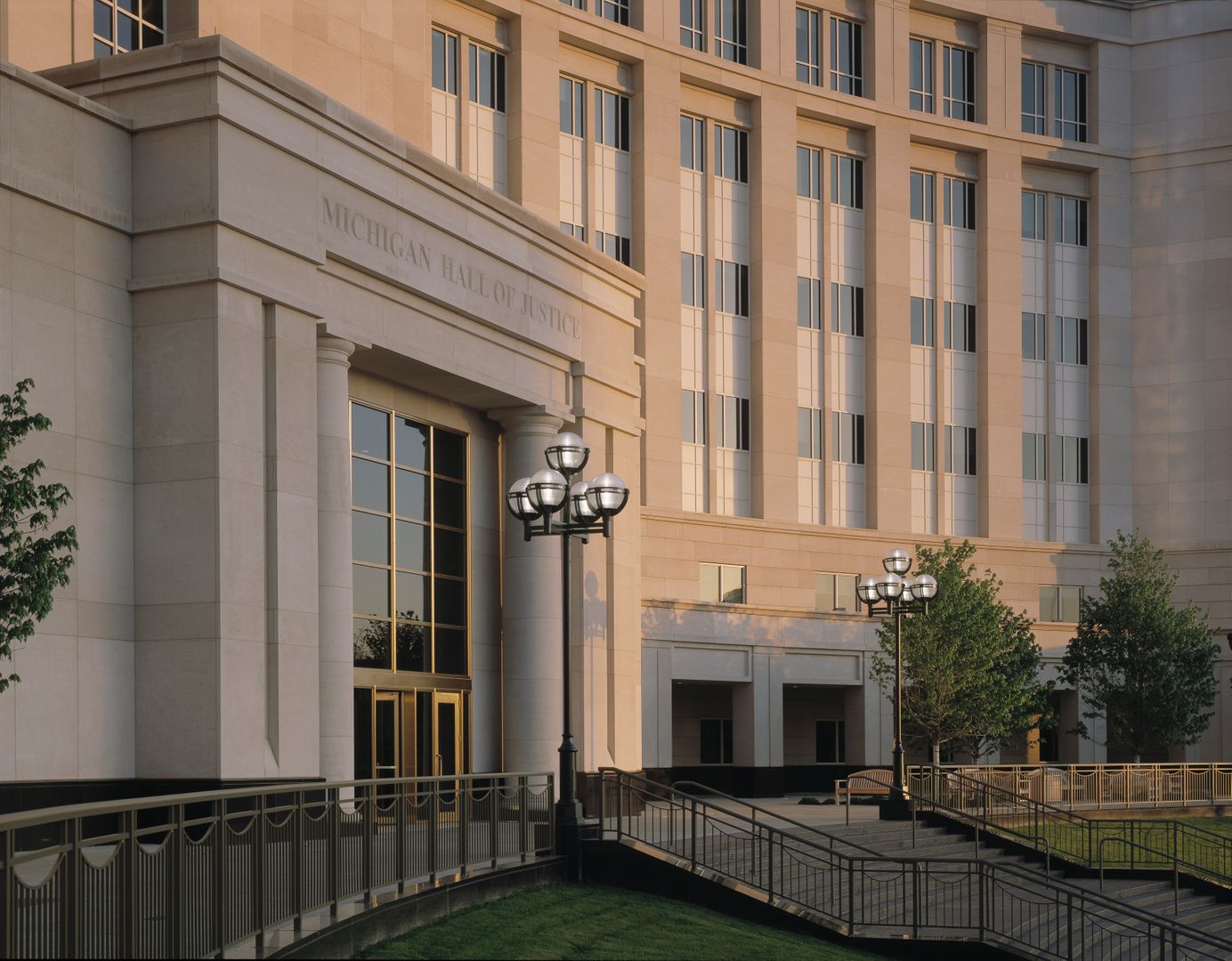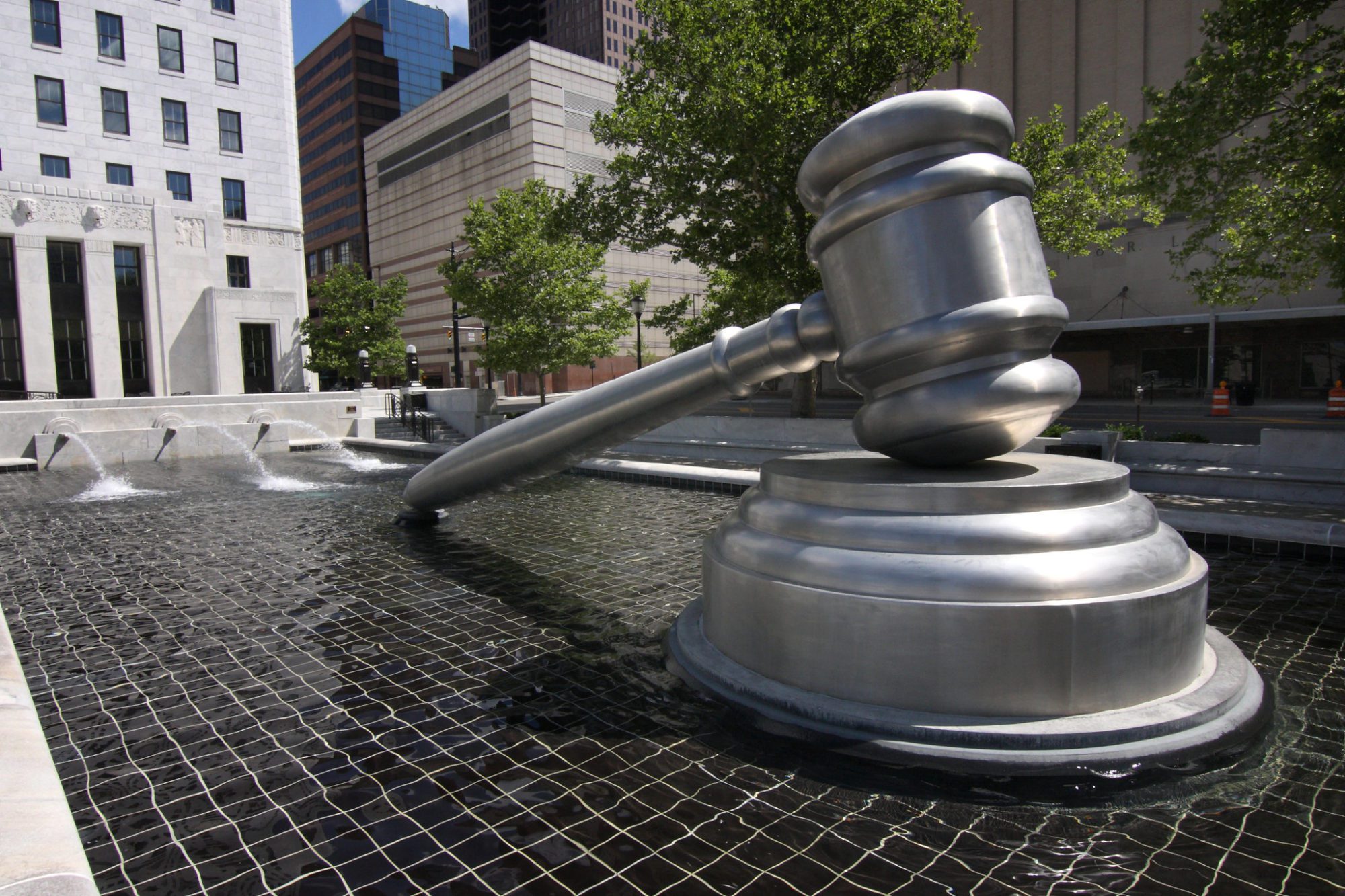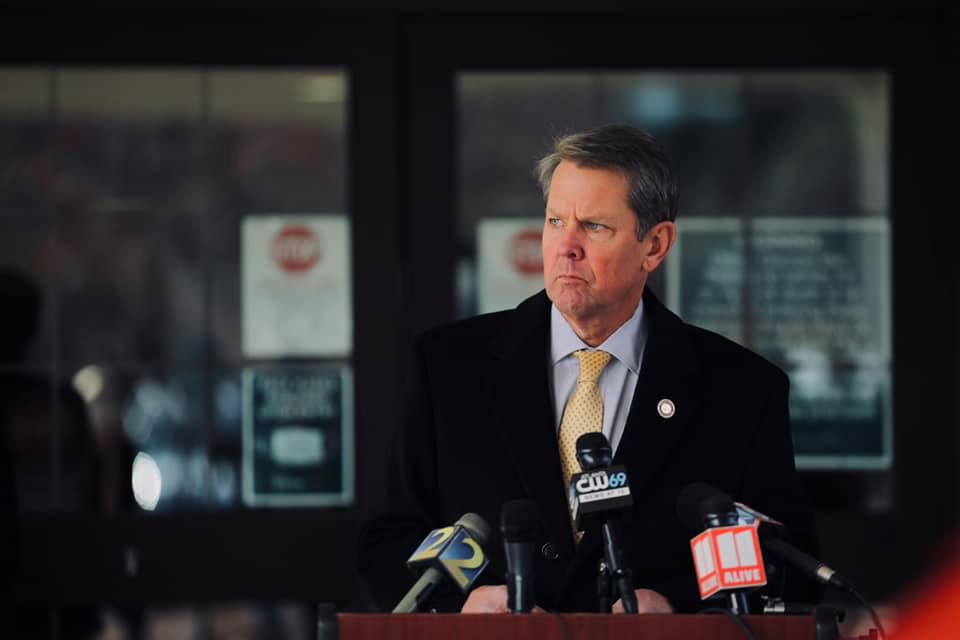Kathy Hochul Pushes New York’s Highest Court to the Right
The governor’s nomination of a new chief justice, now subject to confirmation in the state Senate, would likely strengthen the court’s conservative bloc.
| December 22, 2022

Fresh off her narrow re-election win in November, Governor Kathy Hochul had an opportunity this month to steer New York’s highest court toward either ideological direction.
She chose to push it to the right on Thursday by nominating Hector LaSalle, an appellate judge and former prosecutor who has amassed a conservative record, particularly on defendant rights and police oversight, to the New York Court of Appeals.
Hochul’s choice builds on the legacy of Andrew Cuomo, the former Democratic governor who at one point had appointed all seven court members, locking in a right-leaning majority that is now likely to live on.
“Judge LaSalle has a sterling reputation as a consensus-builder, and I know he can unite the court in service of justice,” Hochul said in a statement. Hochul added that LaSalle, whose nomination is subject to a Senate confirmation, will also be the state’s first Latino chief judge.
In the lead-up to Hochul’s decision, a coalition of progressive New York organizations released an assessment calling the prospect of LaSalle’s nomination “unacceptable” and zeroing in on his rulings on cases that dealt with abortion, criminal justice, and labor. Last week, a group of 46 law professors released a joint letter raising concerns about LaSalle due to what they described as his “activist conservative jurisprudence” and his “cavalier attitude towards reproductive rights, hostility to organized labor, and a worrying insensitivity to due process.”
“He’s put his judicial philosophy out there, on paper, and it strikes me he is to the right of the majority of New Yorkers,” Steve Zeidman, a professor at CUNY law school who signed onto that letter, told Bolts on Thursday.
“This is someone who is less concerned with individual civil liberties, and more concerned with siding with the government and corporations,” Zeidman added.
Jocelyn Simonson, a professor at Brooklyn Law School, told Bolts on Thursday that she also signed the letter because she finds LaSalle’s record on issues including reproductive rights and criminal procedure to be “abysmal.”
If he is confirmed by the state’s Democratic-run Senate, LaSalle would fill a vacancy left by Chief Judge Janet DiFiore, who abruptly resigned this summer. On the court, DiFiore was part of a bloc of four judges—all appointed by Cuomo—who have consistently banded together around rulings that strengthened the hands of law enforcement, management over labor, landlords, and prosecutors in a slew of cases, the publication New York Focus reported in June.
DiFiore’s departure broke that bloc’s control over the court, but LaSalle’s record suggests he would reconstitute a conservative-leaning majority.
The main case highlighted by the law professors’ letter last week was a ruling, joined by LaSalle in 2017, that partially protected crisis pregnancy centers, which are run by anti-abortion groups, from an investigation into possible fraud by the New York attorney general’s office.
Another LaSalle ruling that has gained scrutiny came in a 2015 case that authorized the corporation Cablevision to sue union officials for defamation despite state laws that are meant to protect labor leaders. Communication Workers of America released a statement on Wednesday, before LaSalle’s nomination, denouncing his “anti-union stance that directly contradicts the rights of New York’s workers to organize.”
LaSalle has also drawn criticism from criminal justice reform advocates for regularly voting against defendants who brought lawsuits challenging their arrest or conviction.
Simonson, who teaches criminal law, pointed to a 3-2 ruling in a 2014 case known as People v. Corbin, in which LaSalle sided with the majority in holding that a defendant had waived his right to challenge the constitutionality of a warrantless search when he pled guilty. “Judge LaSalle has demonstrated a troubling lack of concern for the rights of people charged with crimes, especially when it comes to the ability of courts to review unconstitutional police conduct,” she said.
LaSalle would be the fourth former prosecutor on the seven-member court. He is, in fact, the third consecutive appointment to the court who is a former prosecutor, after Cuomo-appointee Madeline Singas and Hochul-appointee Shirley Troutman.
The court currently has no member who has worked as a defense attorney.
“When you look at the federal level, it’s such a contrast with what’s happening in New York,” said Zeidman, the law professor who is himself a former public defender, pointing to President Biden’s nomination of civil rights attorneys and public defenders to the federal bench. That push has largely not been mirrored in state courts, even in blue states like New York.
“The need for that professional diversity, it’s evident in how the [New York] Court of Appeals has operated for the last several years,” Zeidman said. “When you look at criminal cases, much has been written about the fact that the court of appeals is hearing fewer and fewer criminal cases, and when they are, the majority seems to have a knee-jerk reaction of siding with the prosecutors no matter how egregious the issues raised by the defense.”
Eliza Orlins, a public defender and activist in New York City, said she is concerned about the broad powers the chief justice exercises over the court system.
“We’ve made marginal progress in New York in terms of criminal justice issues, when prior we were one of the worst states in the country on discovery, on prosecuting children as adults, on so many things,” she told Bolts on Thursday. “That can all be put in jeopardy.”
Hochul’s choice was constrained to a list of seven names selected by the state’s Commission on Judicial Nomination, a body made up in large part of appointees of Cuomo and DiFiore that created controversy for excluding some prominent liberal jurists and candidates of color.
Still, the list presented a clear ideological choice for Hochul. Three of the jurists on the list, including LaSalle, had a record closer to that of the court’s current conservative bloc. Three others were endorsed by the progressive coalition, The Court NY Deserves, as the likeliest to counterbalance the right-leaning bloc.
LaSalle was one of three judges on that list to receive the highest qualification ratings from both the New York State Bar Association and New York State Trial Lawyers Association; the other two who did were among the jurists who were championed by progressives. LaSalle has also received strong support from Hispanic and Latino lawyers’ bar associations in New York.
After Hochul’s decision, several progressive groups in that coalition, such as the Working Families Party, quickly called on the state Senate to reject LaSalle.
“The folks we were hoping ultimately would be considered and appointed were people whose backgrounds and histories showed they were committed to uplifting the lives of marginalized folks,” said Tolu Lawal, the co-lead organizer of Unlock The Bar. “Hochul is on notice and the Senate is also on notice that people are paying attention, and we will be watching the votes and making decisions afterward.”
Several left-leaning New York senators announced they would oppose LaSalle on Thursday.
“It’s indefensible to ask for Black votes and then work to incarcerate us,” Jabari Brisport, who represents Brooklyn tweeted on Thursday. “No on LaSalle.”
Samra Brouk, who represents the Rochester area, denounced LaSalle’s judicial record as “anti-woman, anti-worker, and anti-family.” Others who voiced opposition include Michelle Hinchey, Kristen Gonzalez, Robert Jackson, and Julia Salazar.
Other Democratic senators with a progressive reputation had more vague reactions to LaSalle’s nomination on Thursday. Brad Hoylman, the chair of the chamber’s Judiciary Committee, told New York Focus that he is undecided on LaSalle. Zellnor Myrie, who released a statement last month calling on the governor “to prioritize civil rights and defense experience when selecting our next top jurist,” also tweeted that he was undecided on Thursday.
Nominations to state court typically don’t draw much attention or controversy. “Traditionally, the senate has been a rubber-stamp,” Zeidman said.
In 2021 progressives tried to organize against Cuomo’s choice to send Singas, who at the time was the district attorney of Nassau County, to the high court. But despite some recorded opposition in the senate, Singas was easily confirmed.
She went on to solidify what became the court’s conservative bloc. At least one powerful New York senator, Michael Gianaris, told Bolts and New York Focus in July that he regretted his support for Singas. On Thursday, his office pointed Bolts toward a statement he issued in September that called for “diverse legal experience.” Another New York senator who supported Singas’s nomination, Andrew Gounardes, said in July that he did not regret his vote because “no one could foresee just how important state government would be;” on Thursday, he released a statement on Thursday saying that he was “deeply concerned” by LaSalle’s record and that New York courts should be a “bulwark” against the conservative federal judiciary.
Critics of LaSalle are intent on at least making the case this year that state institutions deserve a bright spotlight.
“In light of the current composition of the Supreme Court and other federal courts, our state courts are more important than ever as interpreters of our laws and our rights,” Simonson said. Zeidman concurs. “I’m optimistic that there’s going to be an awful lot of attention to the confirmation process this go-around.”
Alex Burness contributed reporting.
The article was updated on Friday morning to reflect additional statements from New York senators.
Sign up and stay up-to-date
Support us
Bolts is a non-profit newsroom that relies on donations, and it takes resources to produce this work. If you appreciate our value, become a monthly donor or make a contribution.




